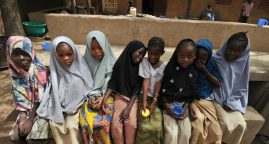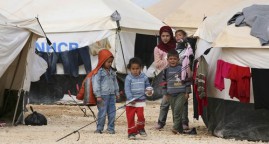The Global Risks Report 2016 is on line
The Global Risks Report 2016 features perspectives from nearly 750 experts on the perceived impact and likelihood of 29 prevalent global risks over a 10-year timeframe. The risks are divided into five categories: economic, environmental, geopolitical, societal and technological.
The report also examines the interconnections among the risks, and through that analysis explores three areas where global risks have the greatest potential to impact society. These are the concept of the “(dis)empowered citizen”, the impact of climate change on food security, and the potential of pandemics to threaten social cohesion.
The report also takes an in-depth look at the how the global security landscape could evolve in the future; sharing the outcomes of a year-long study to examine current trends and possible driving forces for the future of international security.
The report gave rise to a conference
Speakers:
- Adrian Monck, Head of Public Engagement and Foundations, World Economic Forum (moderator)
- Margareta Drzeniek Hanouz, Head of Global Competitiveness and Risks, World Economic Forum
- John Drzik, President, Global Risk and Specialties, Marsh
- Espen Barth Eide, Head of Geopolitical Affairs, World Economic Forum
- Cecilia Reyes, Chief Risk Officer, Zurich Insurance Group
Related Articles
Five key principles for US foreign assistance success
05/22/2017. MFAN urges Congress to use its leadership and budget authority to ensure that the following core principles are reflected in the national budget and any proposed reforms of U.S. foreign assistance.
Fighting violent extremism – humanitarians beware
08/03/2017. Communities in some of the most dangerous corners of the world will be left without lifesaving aid because of countering violent extremism agendas. Millions of people living in countries facing famine may be hardest hit.
48 humanitarian NGOs adopt a joint statement
02/27/2015. Faced with growing threats to the safety of workers of humanitarian assistance, 48 NGOs reaffirm their commitment to humanitarian principles.






